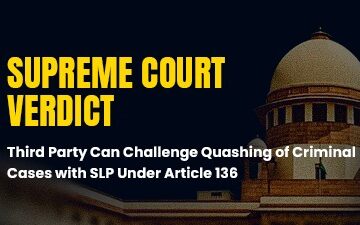In a pivotal ruling on October 24, 2024, the Supreme Court of India addressed a critical issue concerning the conditions imposed during the suspension of sentences in criminal appeals. The court held that any condition that is impossible for the appellant to comply with not only undermines their right to appeal but also infringes upon their rights under Article 21 of the Constitution. This landmark decision underscores the importance of fair and reasonable conditions in the legal system.
Case Background
The case originated from an appeal by the Central Bureau of Investigation (CBI) against the Delhi High Court’s decision to suspend the sentence of Ashok Sirpal, who was convicted of embezzling ₹46 lakhs. Sirpal received a seven-year sentence and a fine of ₹95 lakhs. The Delhi High Court suspended the sentence, requiring Sirpal to furnish a personal bond of ₹50,000.
The CBI contested this decision, arguing that since Sirpal had only deposited ₹15 lakhs of the fine, he should be remanded to custody. They claimed the High Court had not suspended the fine itself, only the imprisonment.
The Supreme Court’s Analysis
The Supreme Court, in its ruling, emphasized the following key points:
- Right to Appeal: The court stressed that any conditions imposed during the suspension of a sentence must be achievable. An impossible condition violates the appellant’s right to appeal and infringes upon their rights under Article 21, which guarantees personal liberty.
- Legal Framework: Citing Section 389 of the Criminal Procedure Code (CrPC), the Supreme Court clarified that appellate courts have the authority to suspend both imprisonment and fines. It recognized that a fine is a form of sentencing and should be treated accordingly.
- Precedent: The court referred to the precedent set in Satyendra Kumar Mehra v. State of Jharkhand, reinforcing the notion that appellate courts can impose conditions based on the specifics of each case.
The Final Decision
The Supreme Court upheld the Delhi High Court’s order while slightly modifying the conditions. Sirpal’s deposit of ₹15 lakhs was treated as a condition for suspending the fine. The court directed that this amount be held in a fixed deposit until the conclusion of the appeal, ensuring that the rights of the accused were respected while maintaining the integrity of the judicial process.
Conclusion
This ruling by the Supreme Court is a significant step in ensuring that conditions imposed during the suspension of sentences are fair and reasonable. It reinforces the judiciary’s commitment to protecting the rights of individuals, even those convicted of serious offenses. The decision serves as a reminder that justice must be accessible and equitable, aligning with the fundamental principles of human rights in India.
By addressing the importance of reasonable conditions, the Supreme Court has paved the way for a more just legal framework that respects individual rights. This landmark ruling not only impacts the specific case of Ashok Sirpal but also sets a precedent for future cases, ensuring that justice remains a cornerstone of the Indian legal system.


